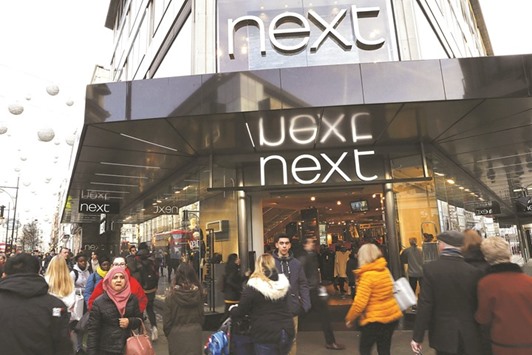European stock markets drifted yesterday as traders awaited clues from the Federal Reserve on the outlook for US interest rates.
But after spending most of the day in the red, London’s FTSE 100 pushed into positive territory just before the closing bell, setting a fifth straight record closing high.
In the eurozone, Frankfurt’s DAX 30 index and the Paris CAC 40 both ended the day unchanged.
Wall Street firmed, but nearing midday was still over 80 points short of the landmark 20,000 point on the Dow.
The dollar was lower against major rivals following a robust showing on Tuesday.
“The Federal Reserve raised interest rates for only the second time in a decade in December and the only time in 2016 but warned that three more (rate hikes) could follow this year,” noted Craig Erlam, senior market analyst at Oanda trading group.
“While this exceeded market expectations at the time, investors have since been undeterred by more rate hikes which would suggest there’s more faith in the recovery, aided most likely by the expectation of fiscal stimulus from the Trump administration.”
Ahead of the publication of the minutes of the Fed’s December meeting yesterday, investors digested a survey showing that eurozone business activity hit its highest rate since May 2011 in December.
Data monitoring company IHS Markit said its report suggested the 19-nation eurozone economy was set for solid growth but nothing could be guaranteed as “political uncertainty dominates” – an apparent reference to the election of Donald Trump and continuing turmoil over Brexit.
Official data meanwhile showed that eurozone inflation jumped to 1.1% in December, the highest level for more than three years, boosted by rising oil prices.
That helped push the euro higher, but the gains were not commensurate with the improved outlook for the eurozone economy, said Jasper Lawler, a market analyst at London Capital Group.
“The likelihood of hawkish minutes from the Federal Reserve pointing to further US rate rises contrasted with the extension of quantitative easing by the ECB means euro bulls are few and far between,” he said in a market commentary.
In the UK, British clothing retailer Next warned of a tougher trading year ahead as a weak pound caused by Brexit uncertainty pushes up raw material costs.
Shares in Next slid more than 12% on the news, dragging down stock values of clothing competitors Marks and Spencer and Associated British Foods, which owns also budget garment chain Primark.
“Next’s downbeat trading statement is weighing heavily on retail stocks,” said Neil Wilson, senior market analyst at ETX Capital.
“Investors are clearly wary with Brexit, inflation and a weak pound all a major concern.”

Pedestrians walk past a Next store in central London. Shares in the British clothing retailer slid more than 12% yesterday as it warned of a tougher trading year ahead.
